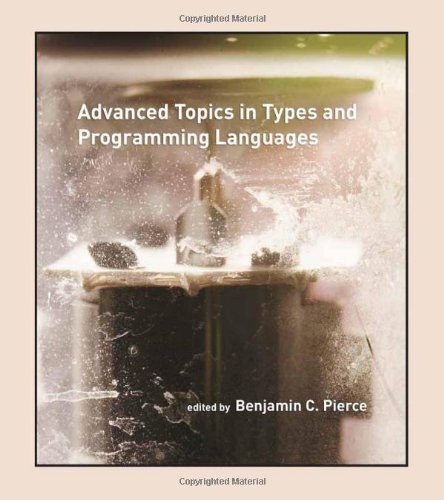Types and Programming Languages pdf
Par paschal bruce le lundi, septembre 26 2016, 06:36 - Lien permanent
Types and Programming Languages. Benjamin C. Pierce

Types.and.Programming.Languages.pdf
ISBN: 0262162091,9780262162098 | 645 pages | 17 Mb

Types and Programming Languages Benjamin C. Pierce
Publisher: MIT
It is not possible to interact with a database with these types of coding languages but you can interact with a server. Many languages like C++ , C# , and Java allow you to create objects that represent simple types like integer or float . Types and programming languages - Benjamin C Pierce - Google Books The study of type systems--and of programming languages from a. Good day everyone, This is my first post and I would greatly appreciate your help. X ) )( u r ) evaluates to u r ( λx . Kotlin features nice syntactic We think of Kotlin as a modern language for industry: it is focused on flexible abstractions for code reuse and readability, static type safety for early error detection and explicit capturing of intent for maintainability and clarity. No special software is required on your server to make this language function properly. Sometimes people say "Haskell is so different and advanced as a programming language, it needs a new type of editor/IDE". Different types of Programming Language. I have seen bit-fields, but I have heard they are not portable, and perhaps not used as well? On page 56 at the top of the page he has the reduction: ( λx . Why don't we have data types that are 4 bits in size? Question from Pierce's Types and Programming Languages. If we have to classify programming language we can seperate them in two categories which are listed below. The very first programming language that we experimented with for the Adventurous Developer's Guide to JVM Languages report was Kotlin, the JVM programming language developed by JetBrains. Why can't we make them if we are so inclined? A function that can evaluate to or be applied to values of different types is known as a polymorphic function. Syntax and semantics of programming languages, grammars, design of programming languages, data types, variables, statements, procedures, recursion, parameter passing, dynamic and static memory management. I don't disagree with it, but who has the vision of what the Haskell IDE should be?